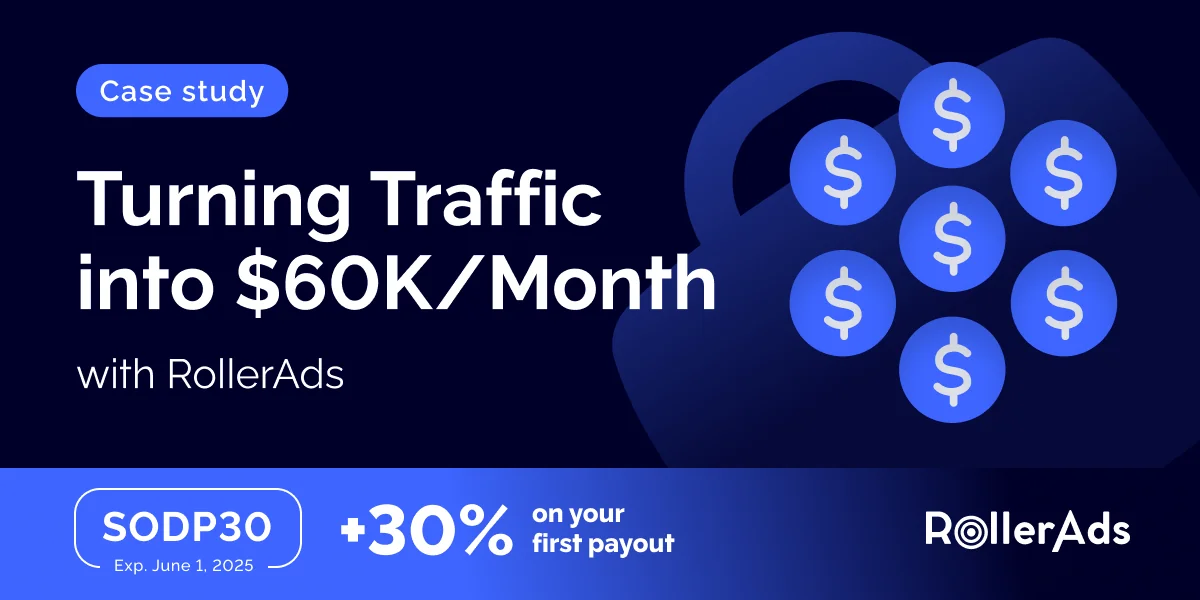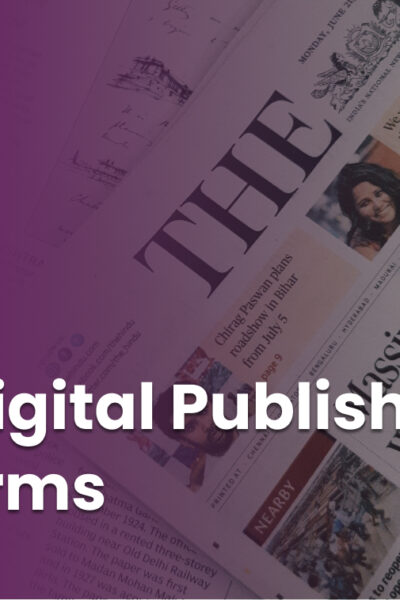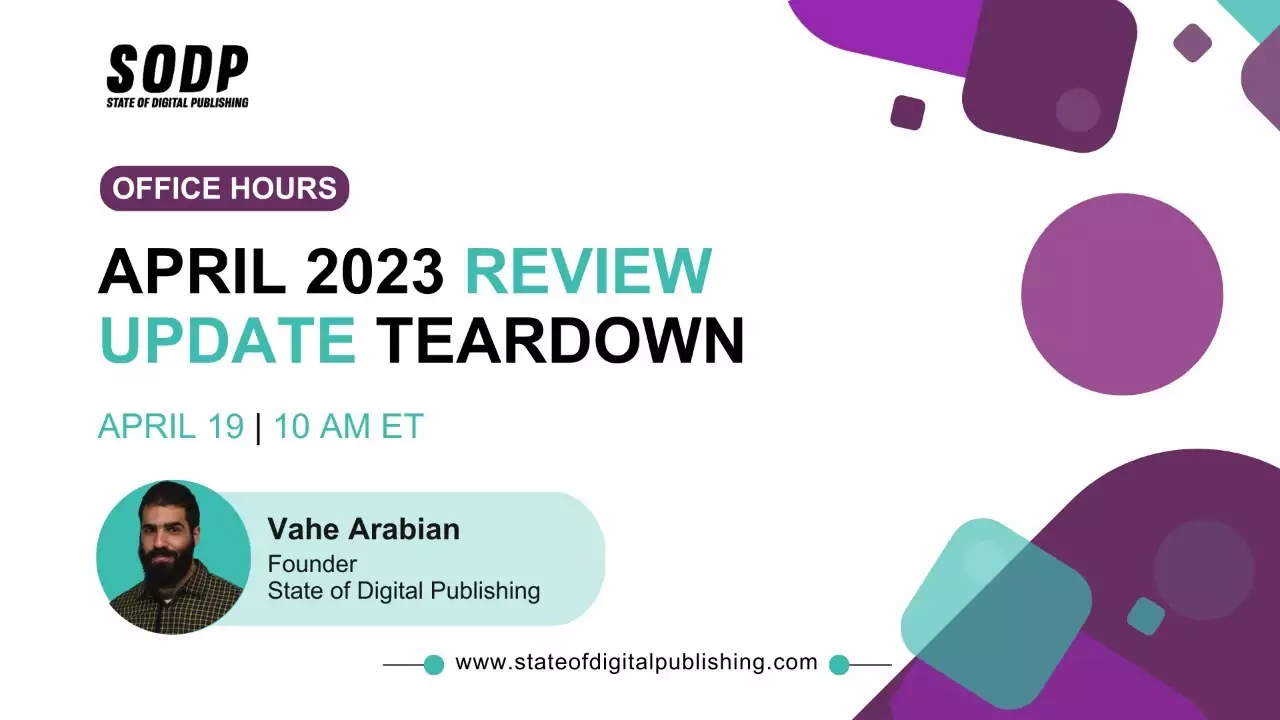What’s been happening in the world of digital publishing over the last week? Here’s your weekly round-up of news, announcements, product launches, and more.
Trends and reports
Publishers report audio revenue up 500% in a year as podcasts enter ‘golden age’
Among the sample of 12 publishers included in the report, which was produced by the Association of Online Publishers (AOP) and Deloitte, audio revenue hit £4.2m in the first quarter of this year. This was six times what they made in the first quarter of 2021.
Why it matters: “The digital audio revenue growth captured in the latest DPRI reflects an emerging trend. AOP managing director Richard Reeves said: “We’ve seen revenue for digital audio grow steadily over the last few quarters, driven in part by what’s being deemed the ‘golden age of podcasts’. The 500% revenue growth reported for this channel in Q1 2022 demonstrates that publishers are now successfully monetising this type of content.””
Big tech and the future of journalism
Twiggy Forrest’s Minderoo helps local publishers strike Google deal
Publications such as The Greek Herald, The Australian Jewish News, Australian Chinese Daily and Time Out will receive funding from search giant Google after negotiating a commercial deal with Andrew Forrest’s Minderoo Foundation.
Minderoo, with approval from the Australian Competition and Consumer Commission, was negotiating on behalf of 24 Australian independent publishers to obtain funding for use of their content. The amount of money was not disclosed, but the not-for-profit said it will be used for a range of “content” and “digital transformation” initiatives. Read more
Why it matters: “The new deal brings Google’s total local commercial deals to more than 60, which it says accounts for more than 180 local media outlets. Google’s deals were struck after the introduction of landmark news media bargaining laws which, if implemented, would force Google and Facebook to pay eligible large and small news publishers to display articles in the search engine and “newsfeed””
Should Google pay for news in Brazil? It’s complicated
The payment for news content was a hushed addition to a draft legislation whose stated aim is to mitigate the effects of disinformation. Dubbed the “Fake News Bill,” it would force tech giants to have an office in Brazil and to be more transparent and accountable about their users in the country as well as about actions taken to tackle mis- and disinformation. On top of that, massive, automated manipulation campaigns would be criminalized. But while there seems to be a consensus that social media platforms must be regulated, Brazilian journalists are on the fence about the payment for news. Read more
Why it matters: As the author points out, “In Australia, where a similar law was approved, the specifics of deals are murky and both tech and media companies are not accountable. No one knows if the money is being used on journalism and journalists, or if it’s only enriching media executives. And while public broadcasters have received fat payments, community-focused independent outlets have seen no investment.”
The business of digital publishing
Forbes SPAC deal on ice
The blank check company that’s looking to take Forbes public has until end of business today (May 31) to file paperwork with the SEC to close its merger.
Magnum Opus, the SPAC that’s looking to merge with Forbes to take it public, has filed two deadline extensions so far this year. In both cases, the paperwork was filed several days prior to the deadline. Read more
Why it matters: “If no paperwork is filed, either party can walk away from the deal. Given the current state of the SPAC market, that looks likely.”
Why The Independent combined two apps into one in quest for 4m registered users
The Independent used to have two separate apps – Independent Daily Edition (a digital newspaper) and Independent Premium, both offering paywalled content to paid subscribers – but on 12 May went live with a new combined version.
The new app is also open to non-subscribers, of which The Independent claims to reach around 100 million worldwide each month. Read more
Why it matters: “First-party data collection, the voluntary submission of personal details like email addresses often for access to newsletters or paywalled and semi-paywalled content, is becoming increasingly popular for ad revenue-heavy publishers as Google prepares to phase out third-party cookies by the end of next year.” As pointed our by Jo Holdaway (chief data and marketing officer at The Independent): “I believe very firmly that you can have an advertising revenue strategy alongside a subscription strategy. The type of content you produce for driving traffic and audience for ad revenues can be very different to that for driving engagement… It’s only a small amount of our content that goes behind the paywall.”
The Economist considers audio paywall as podcasts reach 3m people a month
The Economist’s monthly podcast listeners are now more than double its print subscriber base – and the audio products are paying their way despite being outside the publication’s paywall.
But The Economist’s director of podcasts John Prideaux told Press Gazette that offering may not be free forever.
Mergers and acquisitions
WP Engine Acquires Company Behind ACF, WP Migrate & Better Search and Replace
Managed WordPress web hosting company WP Engine announced they were acquiring Delicious Brains, the company behind five popular plugins relied on by millions of users worldwide.
The acquisition includes plugins that are highly popular with the WordPress development community include:
- Advanced Custom Fields (ACF),
- WP Migrate,
- Better Search and Replace,
- WP Offload SES
- WP Offload Media
Why it matters: “Perhaps of top concern for customers of the plugins are changes. WP Engine reassures that no significant changes will happen and that they will continue to support the development and improvement of them.”
seoClarity Acquires RankSense
Enterprise SEO platform seoClarity announced the acquisition of SEO automation company RankSense.
The RankSense scaled SEO solutions perfectly complement seoClarity’s offerings. Read more
Why it matters: “RankSense is a natural match with seoClarity as both focus on automated solutions that scale SEO for larger companies and websites.”
Shutterstock acquires Splash News
Shutterstock, Inc., the leading global creative platform for transformative brands and media companies, today announced the acquisition of Splash News, one of the world’s leading entertainment news networks for newsrooms and media companies. Read more
Why it matters: “Splash’s comprehensive collection includes an archive of over 27 million images, and a contributor network of more than 4,000 photographers. This acquisition solidifies Shutterstock Editorial’s Newsroom offering.”
Content from our partners
Audience growth and engagement
Twitter To Roll Out Notifications For Search Terms
Twitter has been spotted working on a new feature that will allow users to subscribe to push notifications for specific search terms.
When subscribed to a search term, users will receive alerts as new tweets with that word or phrase are published.
This feature was discovered in a pre-release version of the Twitter mobile app by Android developer Dylan Roussel. Read more
Why it matters: “On one hand, this could be a helpful way to keep track of things like brand mentions. You could subscribe to tweets containing your company name and get alerted even when people don’t @mention you.
On the other hand, depending on how notifications are delivered, this could be an intrusive nightmare if you subscribe to a term that gets tweeted about dozens of times a minute.”
Advertising
Reminder: Google Ending Expanded Text Ads This Month
As of June 30, 2022, Google will no longer allow users to create or edit expanded text ads.
With the goal of simplifying the way search ads are created and driving performance with automated tools, Google announced this change in August 2021.
After this deadline, users will only be able to create or edit responsive search ads in standard search campaigns.
According to Google, advertisers who make the switch from expanded text to responsive search ads will see an average 7% increase in conversions at a similar cost. Read more












